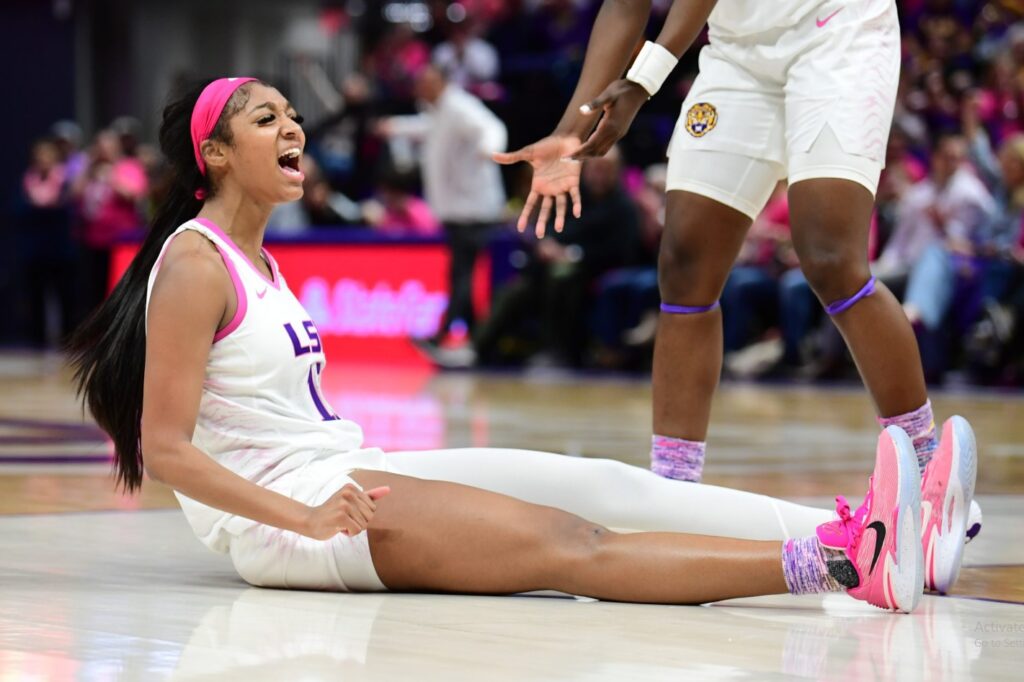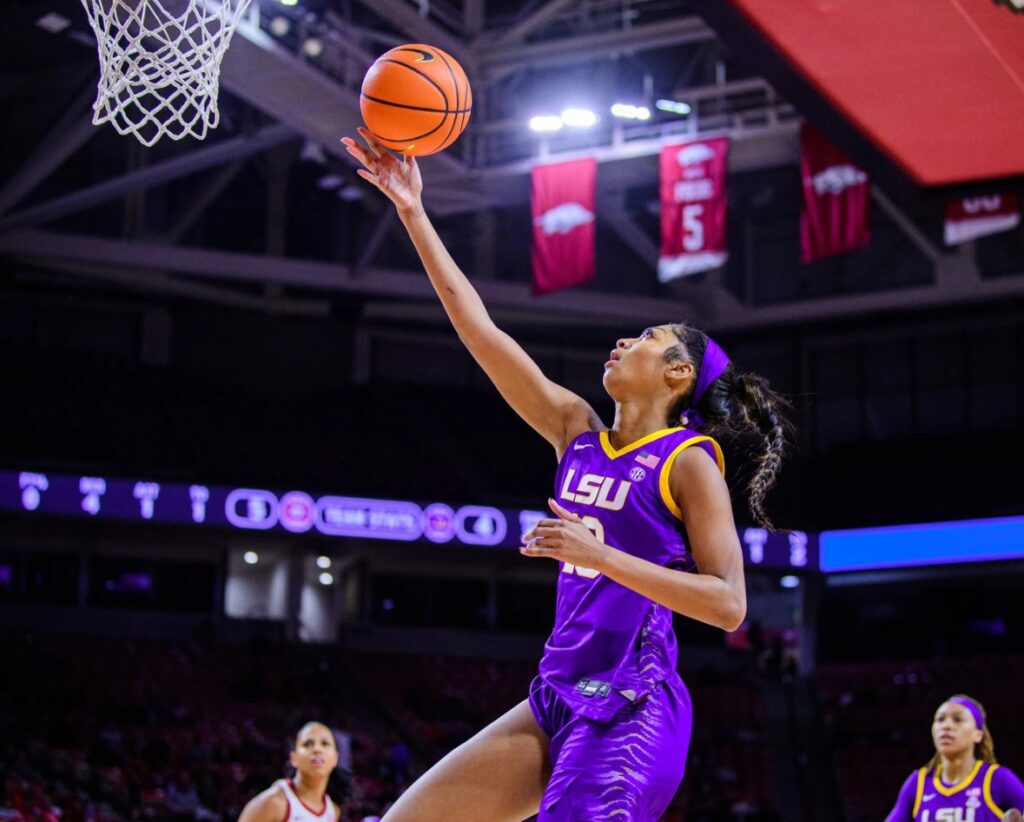Former Giants Player Brandon London Criticizes RG3 Over Angel Reese Comments, Accusing Him of ‘Race-Baiting’
The sports media landscape has been rocked by a heated controversy involving former NFL quarterback Robert Griffin III and former New York Giants player Brandon London, centering around inflammatory comments about WNBA star Angel Reese that have ignited accusations of racial provocation and irresponsible journalism. The latest flashpoint for Robert Griffin III began when the Fox Sports analyst quote-tweeted a racist graphic depicting WNBA All-Star Angel Reese, while condemning the racism, Griffin added a controversial claim: that someone in Reese’s “inner circle” told him she “hates” fellow phenom Caitlin Clark. This unsubstantiated assertion has triggered a firestorm of criticism that extends far beyond typical sports commentary debates, revealing deeper tensions about media ethics and racial sensitivity in modern sports discourse.

Brandon London’s unvarnished critique of Griffin cut deeper than typical media sparring, as he didn’t mince words, publicly demanding that RG3 “shut the f–k up when it comes to talking about Angel Reese and Caitlin Clark.” London’s explosive response represents more than just a personal disagreement between two former NFL players; it reflects a growing frustration within the sports community over what many perceive as manufactured drama and exploitative commentary designed to generate clicks rather than provide meaningful analysis. The former Giants player’s direct challenge to Griffin’s credibility has resonated with many who believe that sports analysts should be held to higher standards of accuracy and accountability, particularly when discussing sensitive topics involving race and prominent athletes.
London specifically challenged Griffin’s credibility, stating, “Either you pull receipts and drop someone’s name, address, Twitter handle, I don’t care. Either you… show us, or bro, just be quiet.” This demand for transparency and verifiable evidence highlights a crucial shift in how sports media is being scrutinized, with audiences and peers alike demanding that commentators provide proof for their claims rather than relying on anonymous sources or unverified information. London’s confrontational approach underscores the growing expectation that sports analysts, particularly those with significant platforms and influence, must be prepared to substantiate their statements with concrete evidence or face public accountability for spreading potentially harmful misinformation.

The backlash, spearheaded notably by former NFL player Brandon London, wasn’t merely about the factual inaccuracy but delved into the deeper implications of such commentary, particularly the accusations of “aura farming” – the perceived act of leveraging high-profile athletes’ names for personal clicks and attention – and even “race-baiting.” This concept of “aura farming” represents a significant critique of modern sports media practices, where commentators are accused of deliberately creating controversy around popular athletes to boost their own visibility and engagement metrics. The accusation suggests that Griffin’s comments were not motivated by genuine journalistic inquiry but rather by a calculated attempt to capitalize on the existing tensions and public interest surrounding the relationship between two of the WNBA’s most prominent stars.
London’s sentiment, that “the race-baiting is getting on our nerves,” reflects a collective fatigue with perceived manufactured drama and exploitation within sports media. This statement captures a broader frustration that extends beyond individual commentators to encompass systemic issues within sports journalism, where racial dynamics are often exploited for entertainment value rather than addressed with the nuance and sensitivity they deserve. The accusation of race-baiting suggests that London and others believe Griffin’s comments were designed to inflame racial tensions or exploit racial dynamics for personal gain, a serious charge that speaks to the responsibility that comes with having a platform in sports media.

The controversy has also highlighted the evolving role of social media in sports commentary, where the pressure to generate viral content and immediate engagement often incentivizes provocative statements over careful analysis and fact-checking. Social media has undeniably revolutionized sports coverage, offering direct access to athletes, real-time reactions, and unfiltered commentary, yet it also serves as a digital crucible where reputations are forged and, just as quickly, incinerated. This environment creates unique challenges for sports commentators who must balance the need to remain relevant and engaging with the responsibility to provide accurate and ethical coverage of athletes and their stories.
The incident has prompted broader discussions about media ethics in sports journalism, particularly regarding the verification of sources and the responsibility that comes with having a large platform. The rising prominence of athletes themselves, empowered by direct social media access, means they can quickly refute false claims, placing the onus on analysts to verify information. This dynamic has fundamentally altered the relationship between sports media and athletes, creating a more immediate and direct form of accountability that can quickly expose inaccuracies or irresponsible reporting practices.
As the controversy continues to unfold, it serves as a significant moment of reckoning for the sports media industry, forcing a re-evaluation of what constitutes valuable commentary and the standards to which commentators should be held. The conversation sparked by the RG3 incident isn’t just a fleeting social media spat; it’s a critical inflection point for the entire sports media ecosystem that forces a re-evaluation of what constitutes valuable commentary and underscores the non-negotiable demand for authenticity and responsibility. The outcome of this controversy may well influence how sports commentators approach their craft in the future, potentially leading to more rigorous standards for verification and a greater emphasis on responsible reporting practices that prioritize accuracy over engagement metrics.
The clash between London and Griffin ultimately represents a larger struggle within sports media between traditional journalistic values and the pressures of the modern digital landscape, where the line between news, opinion, and entertainment continues to blur. As the industry grapples with these challenges, the voices of critics like London may prove instrumental in establishing new norms and expectations for sports commentary that prioritize truth, responsibility, and respect for the athletes who are the subjects of media coverage.